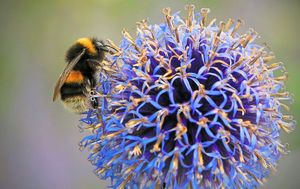Debate over fall in insects
According to a recent report, there has been at least a 75 per cent drop in insect pollination over the last 30 years.

I am in my late 60s and well remember seeing insect splattered windscreens following long car journeys. Also on late summer nights, if windows were left open lots of moths (sometimes big ones) would fly in seeking the source of light.
This has not been the case for many years and lots of younger people have not been witness to this transition, so aren’t aware of the change.
As we are well aware insects are crucial as a food source for many species whose numbers have dwindled as a consequence. Extremely important too is their role in pollination of fruit trees and many food crops.
Apparently scientists are shocked about this revelation and nowhere in this report did it offer a reason for this decline. Well surely one of the main causes of this decline, must be to do with the changing agricultural patterns in using insecticides on such a wide scale, and for so long.
There is still a big debate on the use of the more recent development of neo-nicotinoids, are they affecting honey bees (and presumably wild bees and many varieties of insects of which there are many species).
I believe this type is present on the seed itself so the whole plant is toxic to insects, no need for spraying is its defence of use, so they say. The jury is still out on this one.
It is now known how the bird populations are also drastically declining, more so in rural areas. Insects are vital for them too.
It makes you wonder why when insecticides were introduced, nobody really thought about the long term consequences.
Avril Ferrier
Stourbridge





